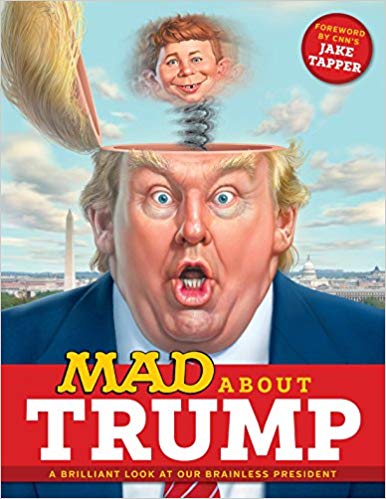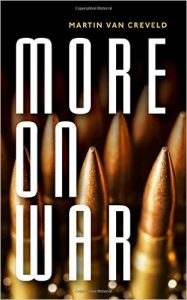 Note: This litte essay was first posted on this blog on 22 December 2022, i.e ten months after Putin started the Russo-Ukrainian War. Since then another nine months have passed. Curious to know how well my original remarks have held up, I re-read and reposted it here. Word by word.
Note: This litte essay was first posted on this blog on 22 December 2022, i.e ten months after Putin started the Russo-Ukrainian War. Since then another nine months have passed. Curious to know how well my original remarks have held up, I re-read and reposted it here. Word by word.
*
The war between Russia and Ukraine has now been going on for ten months. With neither side close to victory or defeat, there is a good chance—mark my words—that it will go on for another ten, perhaps even more. Even if serious negotiations get under way, they will not necessarily end the shooting all at once. Such being the case, instead of adopting the usual method of listing all the changes that the war has brought, I want to try and put together a list of the things that it did not and almost certainly will not change.
Suggestions, welcome.
General
Contrary to the expectations of some, notably the American political scientist Francis Fukuyama in his 1989 essay, “The End of History,” war remains, and will remain, as important a part of global history as it has ever been.
There is no sign that the causes of war, be they divine anger with one or more of the belligerents (Isaiah), or the nature of man (Genesis) , or economic (envy and greed), or the absence of a legal system that can rule over sovereign entities, or simply the personal ambitions of certain rulers, have changed one iota.
War is a social phenomenon rooted in the societies that wage it. As a result, each society wages it in its own way. As society changes, so does war. To win a war, the first thing you need is to gain an understanding of what kind of war it is and what is all about (Prussian general and military critic Carl von Clausewitz).
The nature of war, namely a violent duel between two or more belligerents in which each side is largely free to do as he pleases to the other, has not changed one bit.
War remains what it has always been, the province of deprivation, suffering, pain and death. Also, and perhaps worst of all, bereavement; also of friction, confusion, and uncertainty. Often the more robust side, the one psychologically and physiologically better able to engage with these factors and keep going, will win.
In war everything is simple, but the simplest things are complex (Clausewitz).
Victory means breaking the enemy’s will (Clausewitz); defeat, to have one’s will broken.
All war is based on deception (the ancient, perhaps legendary, Chinese commander and sage Sun Tzu). The first casualty is always the truth.
“It is good war is so terrible, or else we would like it too much” (Confederate general Robert E. Lee; seconded, in 1914, by then First Lord of the Admiralty Winston Churchill). War is the greatest fun a man can have with his pants on (anonymous).
“War is sweet for those who are not familiar with it” (Erasmus of Rotterdam).
“No one has ever benefitted from a long war” (Sun Tzu).
Preparation and Training
The best school of war is war.
“By learning to obey, he learnt to command” (Plutarch on Roman military commander Titus Quintus Flaminius).
“Their maneuvers are bloodless battles, their battles bloody maneuvers” (Jewish historian Josephus Flavius on the Roman legions).
“I notice that the enemy always has three courses open to him, and that he usually chooses the fourth” (Helmut Moltke to his staff).
Strategic-Operational
As the belligerents exchange blow for blow in an attempt to knock out the enemy, war has an inherent tendency to escalate and run out of control.
God tends to be on the side of the larger battalions (Napoleon, who for German readers does not need an introduction). But not always.
“The best way to run a conflict is by negotiation. If you are too dumb to negotiate, use dirty tricks. If you cannot use dirty tricks, resort to maneuver; if you cannot maneuver, fight a battle; if you cannot fight a battle, lay siege” (Sun Tzu).
An army marches on its stomach (Napoleon).
The greater the distance between front and rear, the harder and more expensive it is to keep the army supplied (Sun Tzu).
War is an imitative activity that makes the belligerents resemble each other. The longer the war, the more alike they become.
Everything else equal, the defense is superior to the offense. First, because it does not face constantly extending lines of communication; second, because anything that does not happen favors it. The longer the war lasts, the more likely it is that the attack will turn into a defense.
Morale and Organization
“War is a physical and mental contest by means of the former” (Clausewitz).
In war the moral is to the physical as three to one (Napoleon).
It is with colored ribbons that men are led (Napoleon).
On organization: One Mameluke was a match for three Frenchmen. A hundred Frenchmen were a match for three hundred Mamelukes (Napoleon).
“Four brave men who do not know each other will not dare to attack a lion. Four men who are less brave but trust each other will attack resolutely“ (19-century French military writer Ardant du Picq),
One bad commander is better than two good ones.
Technology and War
Depending on the way they are used, most distinctions between “offensive” and “defensive” weapons are meaningless.
Starting with the club and ending with the Internet, technology has done many things to war. However, it has done almost nothing to reduce, let alone eliminate, the distinctions between land, sea and air (and space) warfare. Nor between theory and practice, offense and defense, concentration and dispersal, a knock-out blow and attrition. And so on.
“Weapons, if only the right ones can be found, make up 90 percent of victory” (British General and military author J. F. C Fuller). Not true. Weapons can make a huge contribution to victory. However, their effects can be offset by superior doctrine, superior organization, superior command, superior training, and, above all, superior morale.
The longer a war lasts, the less important technological superiority tends to be.
Information and data are useful, in fact absolutely essential. But they are not enough. What is needed is lead and explosives. As well as, from time to time, cold steel to terrify the enemy.
On Nukes
War, even large scale war, between belligerents one of which is armed with nukes, remains quite possible. Whether the same applies to a situation when both sides has them remains to be seen. My guess? Probably not.
In so far as there is no defense, nuclear war is not war. It is mass murder.
“No one will ever dare use the damn things” (Field Marshal Bernhard Montgomery of Alamein on nukes).
The nice thing about nukes: If they are not used, no reason to worry. If they are used, no need to worry either.
Guerrilla and Terrorism
“The enemy advances, we retreat; the enemy camps, we harass; the enemy tires, we attack; the enemy retreats, we harass” (Mao Zedong).
The “forces of order,” as long as they do not win, lose; the guerrillas, as long as they do not lose, win.
Gender and War
“But for war, the world would sink into a swamp of feminism” Georg W. F. Hegel).
In war, women act mainly in two roles. First, as assistants and cheerleaders. Second, as targets and victims. Everything else is secondary. It would hardly be wrong to say that, without women in these roles, there would have been no war.
Finally –
No principles or doctrines, however good in themselves, well understood, and well applied, can win a war on their own. However, by freeing warriors from the need to think out everything afresh each time, they can provide a lot of help on the way to doing so.



